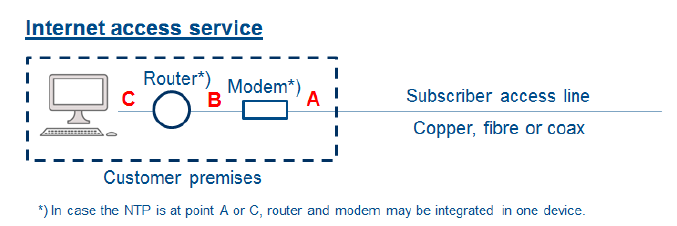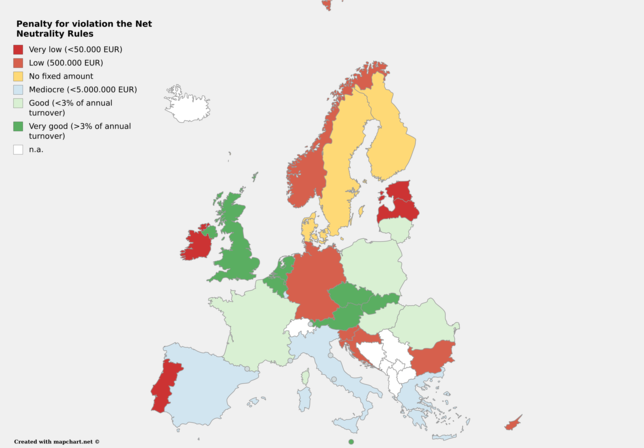Etalab shows how Free Software can be made available for the public sector
mardi 9 juin 2020 à 01:00Etalab shows how Free Software can be made available for the public sector
Etalab maintains two lists of Free Software. One is about the Free Software recommended for the public sector (called SILL) while the other one links to Free Software repositories created by the public sector. To find out more about the two lists we conducted an interview with Bastien Guerry from Etalab.
Etalab, a department of the French public administration in charge of digital affairs, has created two lists of Free Software. One lists the Free Software recommended for the public sector (called SILL) while the other links to Free Software repositories created by the public sector. So far there are 3,739 Software repositories that contain Free Software developed by the public sector. These lists are available online, to browse through, since 2019. This move is in line with the FSFE’s “Public Money? Public Code!” Initiative, where we demand that software developed from and for the public sector should be made publicly available. To find out more about the two lists deployed by Etalab, how they came into being, and the ideas behind it, we conducted an interview with Bastien Guerry from Etalab.
Could you briefly explain what Etalab is and what are its goals?
Bastien Guerry: Etalab is a department of the administration in charge of digital affairs, named direction interministérielle du numérique (DINUM). In this organisation, Etalab coordinates efforts made by the french public sector to release its data and administrative documents as open data. To accomplish this, Etalab operates the data.gouv.fr platform since 2011.

Why did you start the repository to collect Free Software used by the public sector? Why do you see a need for this?
Bastien Guerry: Well, there is no "repository of free software used by the public sector". Such a list would be too long and probably never complete.
Etalab maintains two lists: the catalogue of recommended free software for the administration and the list of source code repositories published by public organisations.
The first list is called the SILL (for "Socle Interministériel des Logiciels Libres") and you can read it on sill.etalab.gouv.fr.
In 2006, a group of public agent tried to gather information on the use of some free software like LibreOffice (OpenOffice at the time) within central administrations. In 2012, the french prime minister Jean-Marc Ayrault published a note stating why and how free software should be preferred in the public sector. After this note, the 2006 group had a more targeted goal: listing all free software that public agencies should prefer. At the time, the big idea is mainly to let administrations converge toward common solutions.
Up to 2018, the SILL was published once in a year as a PDF document and helped administrations knowing what free software they could use, what version was recommended, etc. In 2020, Etalab built a website where the SILL can be easily accessed and updated, not just once in a year. Also, the initial purpose of the SILL slightly evolved: it is not to let public agencies converge toward the same solutions but to make them confident that free software X or Y is significantly used by another agency and thus can be trusted as a mature and useful solution.
Note that the SILL has really two functions: sending a clear message to the public sector ("You should consider using these free software") and to gather tech-savvy agents and let them share their knowledge about detailed use cases of these software within their own central administration or agency.
“Etalab maintains two lists: the catalog of recommended free software for the administration and the list of source code repositories published by public organisations.”What are the requirements for software to be published on code.etalab.gouv.fr?
Bastien Guerry: This is the second list Etalab publishes and maintains: the website code.etalab.gouv.fr lists source code repositories authored by public agencies.
We manually collect links to public organisations, then we automatically retrieve source code repositories from these organisations.
The law for a digital republic of 2016 considers source code to be an "administrative document" and, as such, public agencies are required to publish it under one of the allowed licenses, just like other open data documents - given, of course, certain restrictions.
How many repositories do you have so far?
Bastien Guerry: As of 18 May 2020 we have 422 groups or organisations and 3739 repositories.
How was the resonance of the public administrations, have they submitted software on their own?
Bastien Guerry: Yes. Etalab started to list organisations manually, then some organisations spontaneously submitted their own links.
Note, that while most of them use GitHub to publish source code, some use GitLab and some other use their own GitLab instance.
What kind of software is published most often and by which actors?
Bastien Guerry: I don't have detailed numbers but my guess is that we have 20% of the organisations publishing 80% of the repositories.
I cannot answer about what kind of software is published most often, this requires a careful scrutiny – but I do encourage you to see by yourself.
Could you give an example of a software that was widely reused by another administrations?
Bastien Guerry: We are working on this. For now code.etalab.gouv.fr addresses two simple needs: it promotes the efforts of public agencies which take the time to publish their source code and it helps developers from other public organisations finding out whether some source code has already been written by other administrations.
But as of today, we don't know yet what is reused by who. We are working on this.
Do you have numbers on how often the website is used to find a software?
Bastien Guerry: Our stats for sill.etalab.gouv.fr and code.etalab.gouv.fr are public on stats.data.gouv.fr.
Would you encourage other countries to also have a collection of the Free Software used by public administrations? If so, why?
Bastien Guerry: I would encourage other countries to make a list of recommended free software for their own administration: it helps small public agencies by strengthening their trust in free software and guiding them toward the right tools. It also helps administrations by letting knowledgeable persons discuss with each other about the use of these free software.
“I would encourage other countries to make a list of recommended free software for their own administration”What are the next steps in the development of the repository?
Bastien Guerry: For sill.etalab.gouv.fr, we want to enrol more public agents to help with identifying more free software and publishing more use cases.
For code.etalab.gouv.fr, we focus on identifying free software published by the public sector that other administrations would want to reuse.
We are looking forward to the future use and development of SILL and code.etalab.gouv.fr. Thank you very much for this very interesting interview!
Questions asked for FSFE: Bonnie Mehring
The "Public Money? Public Code!" initiative aims to set Free Software as the standard for publicly financed software. The Free Software Foundation Europe together with over 180 civil society organisations and more than 27.000 individuals signed the open letter. We will use the signatures to contact decision makers and political representatives all over Europe and convince them to make public code the standard. You are invited to add your signature to make a bigger impact on publiccode.eu. Timeline of the Router Freedom's legal framework.
Timeline of the Router Freedom's legal framework.
 NRAs will choose which NTP model to implement in their jurisdiction. Source: BEREC.
NRAs will choose which NTP model to implement in their jurisdiction. Source: BEREC.
 Some of the various benefits of Router Freedom.
Some of the various benefits of Router Freedom.
 Penalties chart for net neutrality violations. Source: epicenter.works, 2019.
Penalties chart for net neutrality violations. Source: epicenter.works, 2019.
 Some usual barriers imposed by ISPs. Check
Some usual barriers imposed by ISPs. Check  There is a lot to be done for Router Freedom in Europe.
There is a lot to be done for Router Freedom in Europe.

 Render of the OperationAIR ventilator. CC-BY-4.0 International OperationAIR
Render of the OperationAIR ventilator. CC-BY-4.0 International OperationAIR
 At the FSFE's hack-a-thons, everything we code is free.
At the FSFE's hack-a-thons, everything we code is free.
 Katharina Nocun, Lawrence Lessig and Matthias Kirschner while recording the Software Freedom Podcast.
Katharina Nocun, Lawrence Lessig and Matthias Kirschner while recording the Software Freedom Podcast.